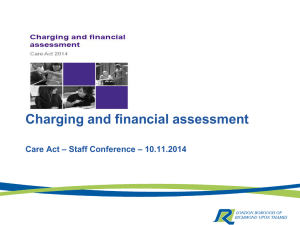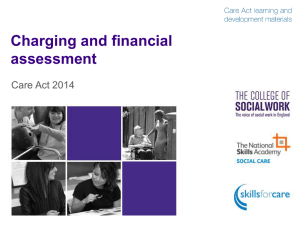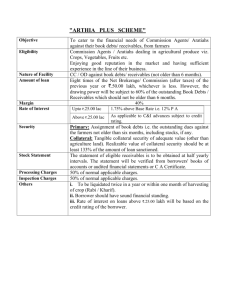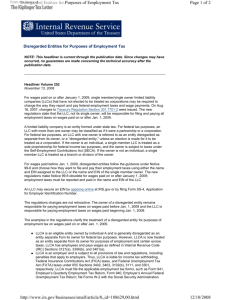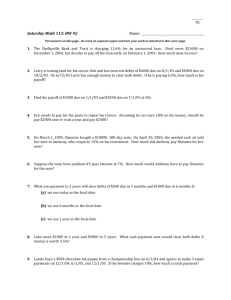Charging and financial assessment overview slide
advertisement
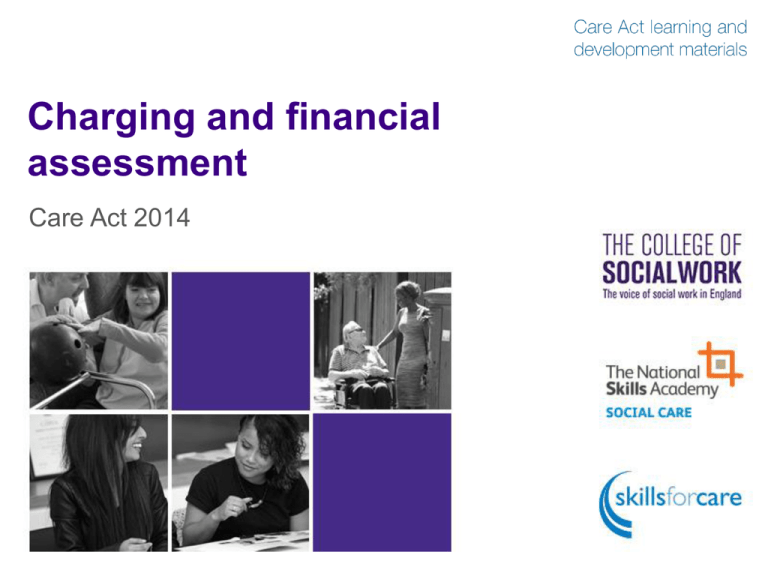
Charging and financial assessment Care Act 2014 Introduction The local authority may charge people for care and support services, and for arranging them, but some services must be free of charge The local authority must carry out a financial assessment if it is going to charge for services, but a ‘light touch’ financial assessment may be appropriate in some circumstances Charges are subject to limits, which depend on whether someone is receiving care in a care home, their own home, or another setting Top-up fees can be charged if a person chooses a more expensive residential care option Debts may continue to be recovered under the new legal framework 2 Financial assessment In a financial assessment, both capital and income must be assessed, which will be either disregarded, partially disregarded or included Some capital and income must be disregarded and local authorities have discretion to disregard assets in some other circumstances. For example: the value of a person’s main or only home must be disregarded where they are receiving care in a setting that is not a care home to help encourage people to remain in or take up employment earnings from current employment must be disregarded 3 ‘Light-touch’ financial assessments A local authority may choose a ‘light touch financial assessment’ for instance where: a) The person has significant financial resources, and does not wish to undergo a full financial assessment for personal reasons b) There is a small or nominal charge for a particular service, and carrying out a financial assessment would be disproportionate c) An individual is in receipt of certain benefits If the authority chooses to do so the person must be informed that they have the right to request a full financial assessment should they so wish 4 Information and advice Accessible information and advice, including: Independent financial information and advice Top-ups Deferred payment agreements Complaints The person must be given a written record of the financial assessment which includes an explanation of how it has been carried out and what the charge will be (if any) The local authority must establish whether the person has the capacity to take part in the care plan and the information disclosure involved in financial assessment 5 What charges can be made? How much a person can be charged will depend on whether a person is in a care home or receiving care and support in another setting Local authorities may charge a carer for support, but they must not charge for ‘replacement’ care and support provided directly to the person the carer supports Charges should be reasonable and not leave people with less than a specified amount of income A person can choose a more expensive residential care setting, through a ‘top-up’ from a third party or the resident A local authority must not charge more than the cost that it incurs in meeting the assessed needs of the person 6 Recovery of debts The existing powers under S22 of HASSASSA 1983 will no longer apply from 1 April 2015 From then on local authorities must use the provisions under S69 of the Care Act: Must offer a DPA whenever possible Ultimately an authority has powers to recover money through the county court Principles of the approach to debt recovery: Court action should be the last resort The local authority should act reasonably Affordable repayments Debts and repayments discussed with the person 7
